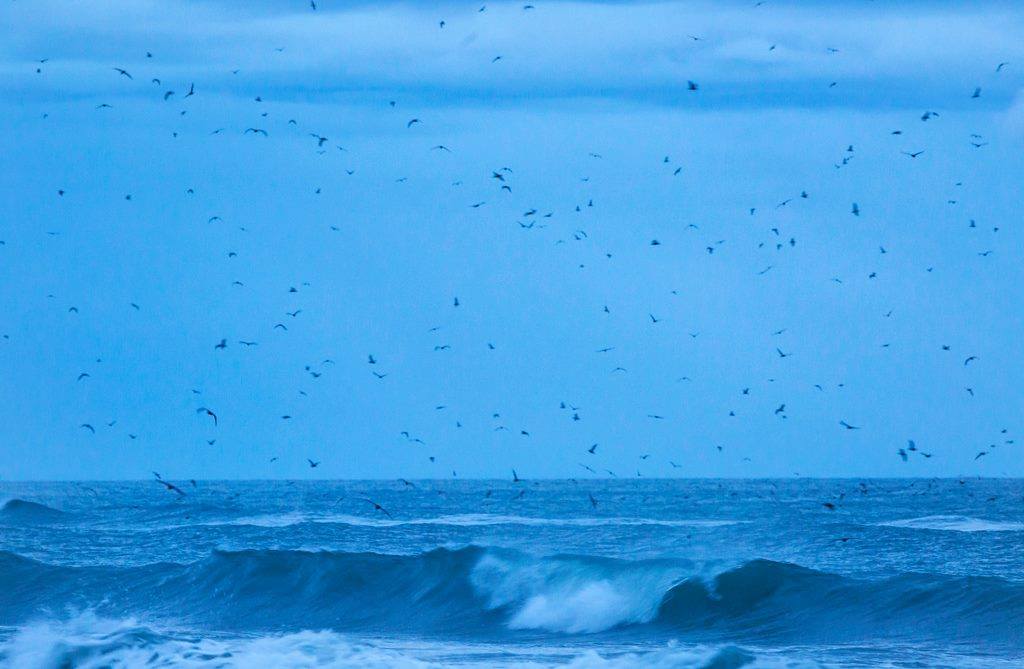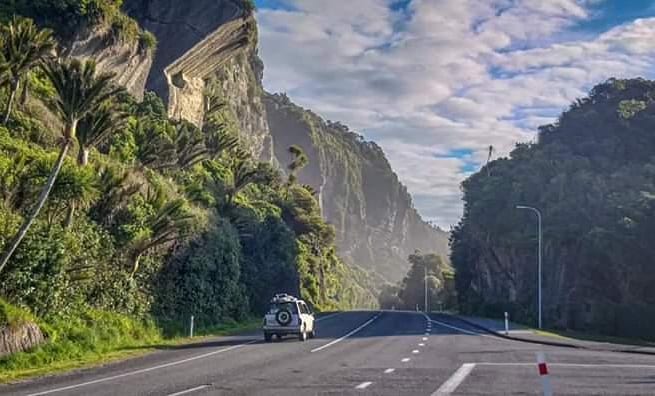
Punakaiki moves into dark times!
Westland petrel chicks are leaving the nest for the first time between November and January and can be disorientated by lights and poor weather at the very start of their long journey to South America.
90% of petrels found downed due to disorientation by lights are fledglings. Tragically, many are disorientated by vehicle or street lights and come down on roads. Black birds on a black road at night are highly likely to be involved in a collision and are often killed. They also need height to launch themselves, so if they come down on the road, they are likely to be stranded.
NZ Transport Agency have recognised this issue and have agreed to trial the switching off of Punakaiki street lights on SH6 for the most critical period, 8th November to 8th January.

Punakaiki Road where lights will be turned off. Photo: Richard Rossiter
You can also help!
If you are on coast roads, particularly around Punakaiki, during November, December and/or January, but also again in March/April, and especially at night, please keep your eyes out for these large black seabirds.
The Department of Conservation has produced some guidance so that you can help.
First of all, if you live in the Punakaiki/Barrytown area, avoid leaving outdoor lights on and close curtains and blinds at night. For the benefit of these and other birds such as penguins, keep dogs secure at home.
Secondly, if you find a stranded petrel:
- If possible, move them away from danger – off the road in particular if safe to do so. Take care as they have a nasty bite, so gently put a towel over them or use gloves – or phone the 0800 DOC Hot line, 0800 362 468 for assistance.
- Place the bird in large cardboard box or similar with air holes and…
- If you’re in the Punakaiki area, take to the petrel drop off boxes at DOC’s Punakaiki Visitor Centre, and call 03 7311 895 if after hours and leave a message noting where and when found etc.
- If further away, phone 0800 DOCHot so that DOC can arrange collection.
- Do not attempt to release the bird yourself. Birds need to be checked by a DOC ranger to ensure they are in good health prior to release.
Thank you for helping these wonderful birds – birds that only breed in this area on the West Coast.

